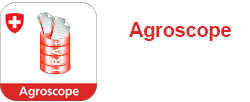In Switzerland most of the traditional cheese varieties are made from raw milk. Their manufacture adheres to strict rules, so as to guarantee quality and purity of the end product. This raises production costs and means consumers pay more. It also opens the door to cut-rate forgeries claiming to be made to the stringent standards and causing considerable economic losses to the entire dairy sector. In order to combat product counterfeiting, Agroscope has developed proof-of-origin cultures that allow the identification of copycats. The proof-of-origin cultures are used for the protection of several traditional Swiss-cheese varieties, such as Emmentaler PDO, Tête de Moine PDO, and Appenzeller®. A market survey showed that the system is effective in revealing fraud and has the power to enforce corrective measures. Now it has been possible to develop proof-of-origin cultures that are also working for extra-hard cheeses with an elevated cooking temperature and an extended ripening period up to 26 months such as Sbrinz AOP. From over 2000 strains tested, three strains (2 strains Lactobacillus paracasei, 1 strain Lactobacillus rhamnosus) could be identified that met all requirements.
Bachmann H.-P., Baumeyer Brahier A., Lüdin P.
Lactic acid bacteria as natural markers for the authentication of swiss raw milk cheeses.
Dans: International Scientific Conference on Raw Milk. 24 October, Valencia. 2019, 1.
Téléchargement anglais (1429 kB)
Lien: International Scientific Conference on Raw Milk
ID publication (Code web): 42611 Envoyer par e-mail










